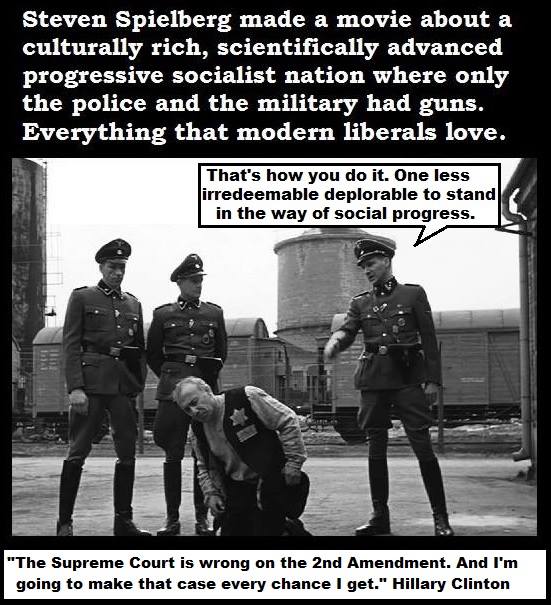According to Todd Hubbard:
GUNS are awesome machines.
Built with great precision, advanced over generations, they are powerful tools for their purpose. Practicing with them brings the pleasure and satisfaction that comes with honing difficult skills. The enforcers of our laws use them to stop the criminals who threaten our lives and property. Our military uses them to kill and contain the violent enemies of our nation. As with any fine machine, looking at a gun, possessing one or working with one is exciting and empowering.
This is what guns are not:
In the hands of civilians, they are not protection from crime. Unless you wear a uniform with a badge or a service patch on it, the gun you carry is more likely to kill you or someone you know or love than it is to kill anyone who threatens you or your loved ones. The “good guy with a gun” who will protect us, rather than threaten us, is the man or woman who has been screened, trained, authorized and empowered by us to do the job. Anyone else, no matter how well-intentioned, is an amateur at best and a hazard to the rest of us at worst. The past 40 years in the United States has been a massive experiment in the theory that a highly armed citizenry will make us safer, and the experiment has been an abysmal failure.
In the hands of civilians, guns are not a bulwark against tyranny. If you believe that guns are a remedy against an oppressive government, then you are on the side of the black man who perceived “his” people being abused by government agents and chose to strike back with a gun. You are on the side of the troubled white man who, 52 years earlier, wanted to bring down the elected government he viewed as corrupt. Dallas is what Second Amendment remedies look like in practice: dead police officers, a dead president.
Many of you, my friends and family, own firearms. I do not want you to surrender your guns. I do not want the government to confiscate them. But I do want you to help address the problem of so many deaths caused by these awesome machines. An informed, engaged electorate is what protects us from tyranny. Stop pretending this problem does not exist or that the only solution is more guns. Do not hide behind “originalist” arguments about the Constitution’s Second Amendment.
Oh good heavens. So let’s cover this one more time for the dense or stolid listener. Mr. Hubbard, who apparently is an attorney, is engaging in lying, and any considered assessment of his behavior would conclude that it approaches malfeasance because he knows better.
In the 1981 decision in Warren v. District of Columbia the D.C. Court of Appeals concluded that it is a “fundamental principle of American law that a government and its agents are under no general duty to provide public services, such as police protection, to any individual citizen.” In Castle Rock v. Gonzales (2005), the Supreme Court declined to expand any requirements for protection and ruled that the police cannot be sued for failure to protect individuals, even when restraining orders were in place.
Mr. Hubbard knows these decisions, and also knows that even if it was commonly accepted that the police were required to protect individuals, it would be impossible. They cannot be there all of the time, and they cannot even promise any particular timely response to your calls. The police can literally eat popcorn and watch while a woman is raped, as long as they effect an arrest after the fact. They may be fired for failure to follow a department procedure, but they will not be charged with a crime. “To protect and serve” is a sweet campaign slogan for Sheriffs who are running for office, but it’s a lie – it’s always a lie – and Mr. Hubbard knows it. The police are there for stability operations and security of the government. Understand that.
You must be your own protection, and if you are a morally righteous man who cares about his own life and the lives of his loved ones, you will have means of effecting that self defense. If you don’t you are negligent in your God-given duties. By negligent, I mean more than that you simply don’t know better. I mean you know better and willingly choose to neglect your duties.
We know that it’s claptrap to say that it’s impossible to effect this self defense, just like we all know that the rate of crime hasn’t gone up as a result of guns. But we also suspect that Mr. Hubbard knows about fourth generation warfare, and that guns are indeed means of amelioration of tyranny, and that genocide is always preceded by gun confiscations.
We don’t “hide behind” the second amendment. It doesn’t grant us the right to own weapons. God does that Himself. The constitution is a covenant between men for how they will live together. Like all covenants, there are promises and curses. Mr. Hubbard doesn’t want to endure the curses of failure to live according to the covenant to which we are all bound, including the second amendment. Mr. Hubbard would do well to ponder that fact.




